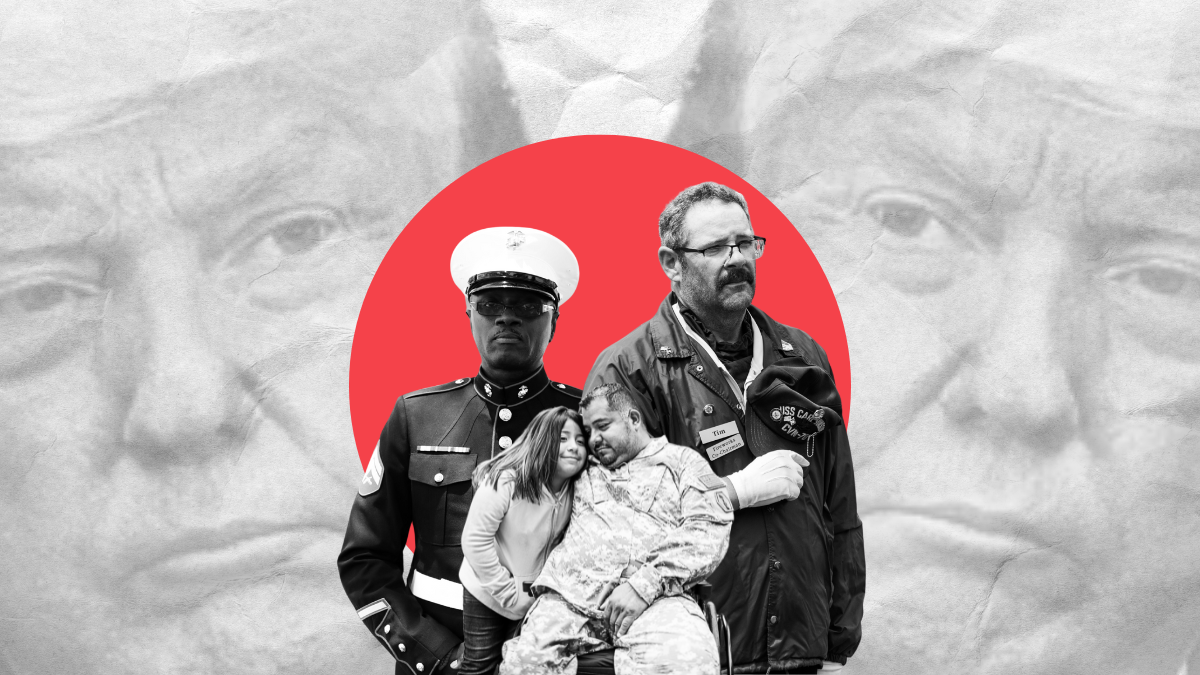In the past few months, Trump, together with billionaire Elon Musk, has been carrying out sweeping attacks on active-duty troops and veterans alike, who receive a wide range of resources and benefits from the Veterans Affairs Department.
Due to the Trump administration’s federal cuts, hundreds of thousands of veterans in the federal workforce have lost their jobs, dozens of medical research projects have been halted, and programs that have provided care for homeless veterans have been rolled back.
In North Carolina, veterans, doctors, nurses, and advocates are calling attention to the harmful effects of these significant cuts on military service members and their families.
“Those who wrote a blank check in service to this country with their lives do not deserve to be penny-pinched by Washington bureaucrats,” stated Dr. Kyle Horton, a former VA doctor and founder of On Your Side Health, during a recent panel in Fayetteville.
Titled, “Voices for Veterans”, veterans, health professionals, elected officials, and local advocates gathered in Fayetteville to discuss the rising threats to democracy and the Trump administration’s cuts to the Veterans Affairs Department.
Hosted by Cardinal & Pine, a North Carolina-based news organization, the event’s panelists included: Ann Marie Patterson-Powell, a VA nurse in North Carolina; Grier Martin, the chair of the North Carolina Department of Military and Veterans Affairs; NC Reps. Eric Ager and Terry Brown, and Jay Carey, a veteran and founder of the nonpartisan advocacy group, Resist & Persist, and more.
“If these cuts go through, you’re going to see the VA’s presence in rural areas start to dry out,” stated Grier Martin, Secretary of the NC Department of Military and Veterans Affairs, during a panel discussion. “These are areas that are already starting to see their civilian hospitals close also.”
According to Carolina Public Press, nearly 2,600 people will be out of a job in North Carolina alone, and more than 72,000 nationwide.
“The thing that bothers me the most is my countrymen saying I’m not worth it,” Darlene Fore, a nurse at the Veterans Affairs Medical Center in Asheville, told Carolina Public Press. “I’m the same nurse who worked in their local hospitals and local health departments. I’m the same nurse who’s always been there for them all this time, and now, all of a sudden, they think I’m a waste of money. I’m furious about that”.
In addition to the federal attacks, North Carolina veterans and overseas service members were targeted by Republican Jefferson Griffin in his attempt to overturn the 2024 election results. Griffin attempted to challenge the votes cast by over 5,500 overseas military service members and veterans, on top of 60,000 votes from North Carolinians across the state. After six months, Griffin conceded following a federal judge’s order to the state to certify Justice Allison Riggs’ election victory.
“To protect military and veterans’ families’ votes, really has to come from the voters, really has to come from political pressure,” stated Sean Wright, a former Army medic, during a panel discussion. “We have to make it, as voters, unacceptable to take away the right to vote.”





